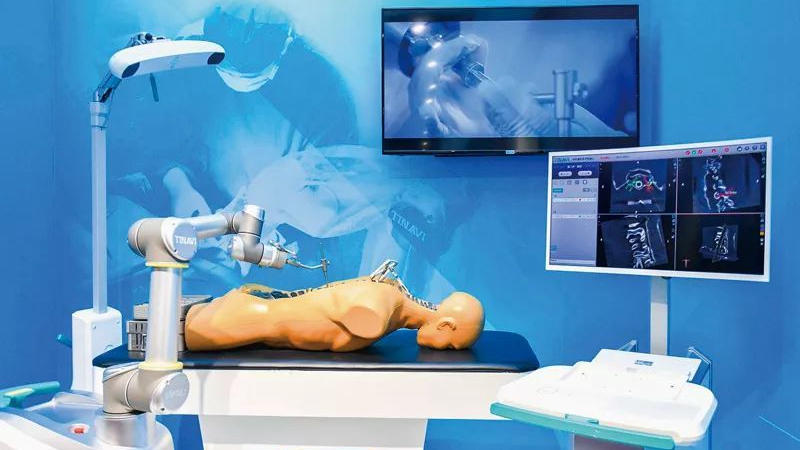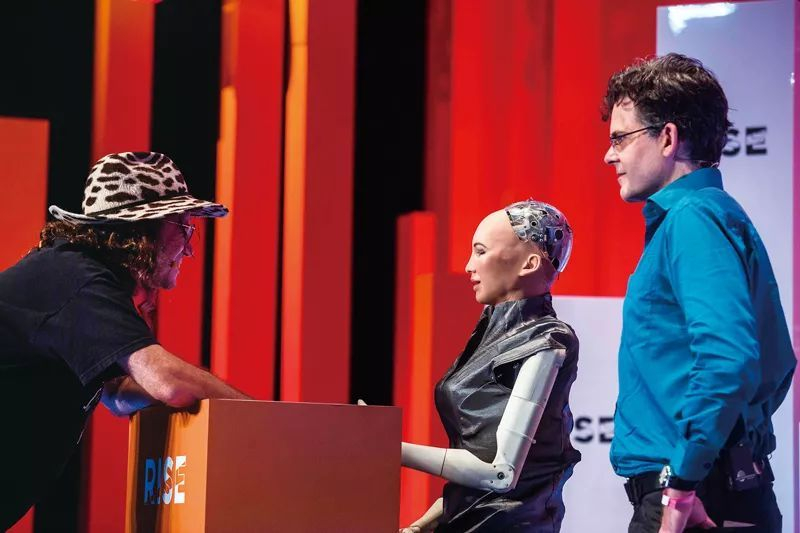
Editor's note: Jonathan Arnott is a former member of the European Parliament. The article reflects the author's opinions, and not necessarily the views of CGTN.
Year by year, artificial intelligence (AI) is becoming a bigger part of our daily lives. In many fields, we're reaching a crossover point: from driverless cars to medical research; from chess-playing engines to self-driving cars, technology now exists where machine-based "thinking" is able to replicate or exceed human abilities.
Fast-forward a couple of years, and the next barrier – price – will be overcome. As technology reaches the mass market, the economics of supply and demand will drive prices down. How humans interact with AI will, in my opinion, be one of the key defining issues of the 2020s.
Today, the European Commission published its White Paper on the regulation of AI. I'm left with a sense of déjà vu. The overall approach fits within the pattern of previous European Union (EU) regulation of technology. There will be additional EU funding, unsurprisingly, and the concept of public-funded digital innovation hubs.
In an Op-Ed piece by Commission President Ursula Von der Leyen on Wednesday, the mood music was very much to continue in this direction, while paying lip-service to the avoidance of over-regulation. History would suggest that a continuation of the EU's previous approach will lead to substantially more regulation than outside Europe.
On a spectrum between over-regulation and innovation, the U.S. and China have tended towards encouraging innovation. The EU focuses firstly upon the impact of technology on its citizens, not shying away from regulations which stamp its own personality onto technological development. Tech giants must comply, whether it is economical and practical to do so or not.
The EU strategy is something of an oxymoron: cautious, and therefore risky. It's based upon a calculation that globally, such regulation will be necessary in the end. If the EU acts first, then others will copy their template – a demonstration of global "soft power". Privately, EU officials talk about their role in setting global standards.
If the U.S. perceives itself as the entrepreneur, and China perceives itself as the innovator, the EU perceives itself as being the policeman. The EU will no doubt be encouraged by their data protection (GDPR) regulations, which have been copied by Brazil and considered by other nations, despite huge controversy within Europe.
If EU standards become world standards, the EU can present themselves as the leader – and everyone else follows, giving EU businesses a competitive edge. When they speak of "international alignment", their meaning is clear: they want the rest of the world to align with the EU approach, not the other way around.

Robot Sophia, the world's first robot to gain citizenship, was unveiled at the Hong Kong convention and exhibition center, July 10, 2018. /VCG
Robot Sophia, the world's first robot to gain citizenship, was unveiled at the Hong Kong convention and exhibition center, July 10, 2018. /VCG
In terms of the actual effect upon the people of the EU, the approach is far more cautious, based upon the precautionary principle. They speak of "protection" of the "digital identity" of their citizens. Facial recognition technology will be the first battleground: Companies like Clearview AI, which has harvested a database of over 3 billion facial images, create an immediate ethical dilemma. How should the privacy of citizens be balanced with the usage of such technology?
China's approach has been clear: It views the law-enforcement side as paramount. It can point, for example, to the use of facial recognition technology to identify and locate potential coronavirus sufferers as one of its tools in limiting the spread of the disease.
The U.S. approach has been more laissez-faire, low-regulation – until now. Its future approach is harder to predict. The big unknown is whether Donald Trump will be re-elected in November or not, and his potential opponents hold a complete range of views; the entire American political landscape a year from now is difficult to predict. Still, Americans are unlikely to follow the EU model.
Modern AI is in an explosive new era. Artificial neural networks (ANNs) allow machines to learn by developing connections in a similar way to the human brain, albeit faster.
When computers control their own learning methods – learning through example and analogy – at speeds far in excess of our own abilities, human beings can't begin to unravel and understand the often game-changing and life-changing results. ANNs can now outperform humans in diagnosis of certain cancers and cardiovascular diseases – healthcare systems have yet to catch up with the new technology. How, though, can anyone hope to legislate and regulate without stifling creativity – especially when human beings do not fully understand the results?
In this "Brave New World," China and the U.S. instinctively seek to innovate – albeit in different ways. The EU instinctively seeks to regulate. Such caution is a gamble. If it pays off, within a decade the world will be following standards modeled upon the EU's.
I fear, though, that it will not – and that the EU's competitiveness in this field will be undermined. I'm not even convinced that current legislative processes, whether in the EU or outside, are yet ready to handle the ever-changing nature of our new digital world.
(If you want to contribute and have specific expertise, please contact us at opinions@cgtn.com.)